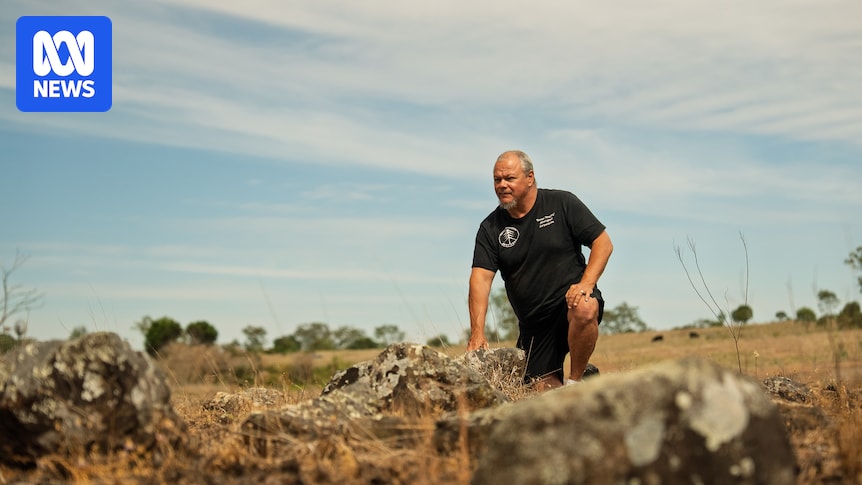
Australia is often celebrated as “the lucky country,” renowned for its stunning landscapes, beaches, unique wildlife, and a laid-back culture. However, the rich and ancient history of its First Peoples is frequently overlooked. This oversight raises the question: is Australia missing a significant opportunity to honor its oldest continuous cultures?
Australia is home to the world’s oldest continuous cultures, a heritage that deserves to be highlighted and celebrated. At ABC News Story Lab, we have embarked on a project called Deep Time, which aims to place Indigenous Australians at the center of their own stories, rather than relegating them to mere footnotes in history.
Deep Listening and Building Relationships
The Deep Time project is not about chasing sound bites. It is about fostering connections, learning, and deep listening. Historically, Indigenous communities and the media have had a fraught relationship, with the media often responsible for negative depictions and stereotypes of Aboriginal and Torres Strait Islander peoples.
Birri and Guugu Yimidhirr woman Tanya Denning-Orman, SBS’s director of First Nations, has worked to counter these negative portrayals through her work at NITV and SBS. At the Indigenous Languages Symposium, she addressed the frustration Indigenous people feel about their portrayal in the media.
“Research repeatedly showed that the overwhelmingly negative stereotyping of Indigenous people in the media led to negative public opinion. Negative public opinion led to destructive public policies but, more importantly, it led to negative self-perception by Indigenous people.” – Tanya Denning-Orman
For Deep Time, engaging with Indigenous groups safely and respectfully was paramount. The tradition of passing down knowledge has preserved Indigenous stories and practices for thousands of years. However, some communities have specific parameters on how they choose to share their knowledge.
The Importance of Truth-Telling
Truth-telling is a crucial component of understanding Australia’s history. The impact of colonization disrupted First Nations peoples’ lives, affecting their access to knowledge and practices that contribute to identity, such as language, law, culture, and tradition. Recognizing what was lost provides a fuller understanding of Australia’s history.
“Truth-telling enables a fuller and more accurate account of Australia’s history to recognize the strength and contribution of Aboriginal and Torres Strait Islander peoples.” – Reconciliation Australia’s Truth-telling Pathways fact sheet
Gunditjmara woman Denise Lovett contributed to the Deep Time project, emphasizing the importance of understanding this history as part of the nation’s truth-telling. She believes that Australia’s story did not begin in 1788 but stretches back to the Dreaming. This narrative must be told by Indigenous peoples in their own way.
Knowledge in the Right Hands
Much of the ancient history and cultural knowledge of Aboriginal and Torres Strait Islander peoples has been shared without proper acknowledgment or ownership. Within the ABC archival unit, there is material that lacks this crucial information. Tasha James, ABC Archives Indigenous collection and community access manager, stresses the importance of prior, free, and informed consent when dealing with cultural knowledge.
“Through our ABC Archives Kin-nect and Two-Ways program, we are not just opening the archive, we are opening a space for Indigenous sovereignty, voice, and knowledge to shape its future.” – Tasha James
There is a moral obligation for those in cultural and memory sectors to reassess their role in relation to Indigenous knowledge. This involves respecting Indigenous Cultural and Intellectual Property (ICIP) and ensuring that traditional knowledge is attributed correctly.
Looking Forward: A Legacy of Inclusion
Projects like Deep Time are about creating a legacy that honors the voices, perspectives, history, and stories of Aboriginal and Torres Strait Islander people. It is about acknowledging and celebrating all the elements that make Australia special, unique, and beautiful.
Shannon Bauwens from the Bunya Peoples Aboriginal Corporation in Queensland, who participated in Deep Time, emphasizes the importance of sharing Indigenous knowledge. By sharing stories like the Bunya gatherings, he hopes to show that Aboriginal culture is living, strong, and central to Australia’s story.
“Projects like Deep Time are about legacy.” – Shannon Bauwens
As Australia continues to evolve, the opportunity to engage in authentic experiences, listen deeply, and forge new connections to learn about the country’s epic history is ever-present. The journey of truth-telling and reconciliation is ongoing, and it is a journey that requires the participation and commitment of all Australians.






